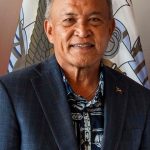Politics
Marshall Islands Politics
This page explores Marshall Island’s political structure incorporating real-time RSS feed news and videos. By harnessing the power of RSS feeds, visitors can stay informed about the latest developments in Marshall Island’s politics as they happen. The dynamic nature of these feeds ensures that users receive up-to-the-minute updates on political events, policy changes, and significant milestones, enabling them to stay abreast of the ever-evolving political scene.

David Kabua
9th President of the Marshall Islands
Incumbent
Assumed office
13 January 2020
Image credit
The Marshall Islands operates as a presidential republic, with a political structure that combines democratic governance and a separation of powers among the executive, legislative, and judicial branches.
At the top of the political structure is the President of the Marshall Islands, who serves as both the head of state and government. The President is elected by the Nitijela, the country’s unicameral parliament, for a four-year term. The President holds significant executive powers and is responsible for leading the government and implementing policies.
The legislative branch in the Marshall Islands is represented by the Nitijela, which consists of 33 members known as senators. The senators are elected by popular vote from single-member districts for a four-year term. The Nitijela is responsible for enacting laws, approving the national budget, and exercising legislative oversight over the executive branch.
The judiciary in the Marshall Islands is independent and ensures the interpretation and application of the law. The highest judicial authority is the High Court, which handles both criminal and civil cases. The Compact of Free Association with the United States allows the United States federal courts to exercise jurisdiction over certain cases in the Marshall Islands.
The political landscape of the Marshall Islands is influenced by the country’s relationship with the United States and its association under the Compact of Free Association. The Marshall Islands also have a traditional system of governance, known as the “Iroijlaplap,” which operates parallel to the national political structure.
In conclusion, the Marshall Islands’ political structure is characterized by a presidential republic, with a separation of powers among the executive, legislative, and judicial branches. The President holds executive authority, while the Nitijela enacts laws and provides legislative oversight. The judiciary operates independently to uphold the rule of law. The political system of the Marshall Islands aims to promote democratic governance and protect the rights and welfare of its citizens.
Unless other sources are listed, original content is provided by ChatGPT. ChatGPT may produce inaccurate information about people, places, or facts.



